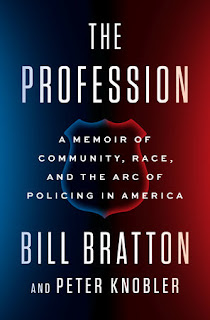Why isn't abject failure seen as an indicator for substantive improvement, rather than something to hide? | Nassau County New York police department
Last week, USA Today ran a particularly disturbing story ("Police hid extent of officers' failure before murder"[registration required, or access through a library articles database, but also available through their reporting partner, Newsday, "Hidden file reveals police failed to protect her from violent ex-boyfriend") about how the Nassau County police department's abject failure to take domestic abuse seriously led to the death of a young woman at the age of 24, making her two children orphans.
Police failed to take the perpetrator in custody, even though it was mandated by state law, refused to enforce protection orders, provided perfunctory service and care when called, failed to produce and file mandated "Domestic Incident Reports," and didn't provide protection for Bird even after she was held at gunpoint by the perpetrator.
What's equally disturbing is that the police department has spent the last ten years diligently and notoriously working to prevent from being released the report analyzing the multiple failures by the department.
Instead of hiding the failures, and over time, promoting many of the officers involved, why didn't the department see the findings as an indicator of a necessary need to change and improve?
Although according to Newsday, both the Nassau and Suffolk police departments have improved significantly their response to domestic abuse ("Domestic violence policing on LI has evolved since Bird case, experts say"). The Nassau police department even provides funding to The Safe Center, an independent domestic abuse assistance program
Granted many police departments don't take domestic abuse or threats on women seriously. That's why Salt Lake Tribune columnist Robert Gehrke argues that Utah universities shouldn't be allowed to have police departments ("Utah needs to disband college police departments now").
About the only instance I've seen of a police department initiating fundamental change after egregious failure is Fullerton, California's police department, where a homeless man was beaten to death ("Here's how Fullerton police have improved since Kelly Thomas' death"). The department was frequently audited by the OIR Group to determine progress and areas where improvements were still needed.
And the kinds of changes, although more focused on processes, by William Bratton in Boston, New York City and Los Angeles, as discussed in his new book The Profession: A Memoir of Community, Race, and the Arc of Policing in America.But there are exemplary programs across the country, such as in High Point, North Carolina ("How High Point, N.C., Solved Its Domestic Violence Problem," Governing Magazine) and Appleton, Wisconsin ("11 questions that could save a woman's life," Appleton Post-Crescent), where extranormal programs result in significantly fewer incidents.
Instead of hiding the report, why didn't Nassau County elected officials and the police department use the failure as a fulcrum for necessary change?
Why is Fullerton, California such an outlier?
The officers involved were acquitted based on their arguments of this is how they were trained and they had the right (not privilege) to use force on subjects because they were police officers.
While by that time the police department had already fired the officers and disciplined others, clearly they took notice that their professional training and standards were inadequate. Not just in dealing with the homeless and mentally ill ("4 years after Kelly Thomas death, Fullerton police improve relations with homeless, mentally ill," KPCC/NPR, "Years After Thomas Beating, Fullerton Police Have New Approach to Homeless," Voice of OC) but for everyone the department comes in contact with.
The interesting thing is that police departments are more set up to respond to crime, rather than to suppress crime to begin with. When departments ignore all the signals and indicators of violence, it makes it almost a certainty that a crime will occur.
Labels: government organization, government oversight, neighborhood planning, policing, provision of public services, public safety




2 Comments:
This story is about reorganizing the Navy SEALS out of a recognition that they lost their way.
The Navy SEALs, a Christmas story
https://www.washingtonpost.com/opinions/2021/12/23/navy-seals-christmas-story/
From USA Today.
https://news.yahoo.com/change-whole-system-experts-sound-041501588.html
NYPD whistleblower Francesco Serpico, experts and lawyers offer solutions to end police code of silence, corruption, brutality and retaliation
Post a Comment
<< Home